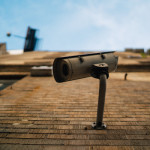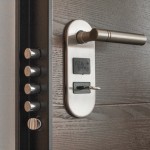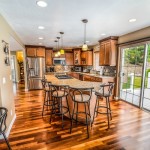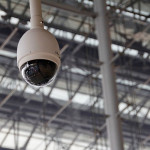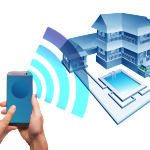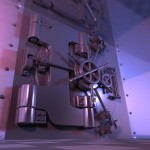CCTV Home Security Camera Systems
For the best home or business security, it’s important to choose the right CCTV security cameras. With the wide selection of security cameras to choose from, the task can seem daunting. To help ease some of the stress, here are a few things you should focus on when shopping for the perfect CCTV security system.
- Cheap ≠ Cost-Effective
You always want to invest in good quality, but sometimes the ideal option falls a little bit out of your price range. That doesn’t mean you should just go the cheap route as this can end up costing you more in the long run. Remember, more often than not, you get what you pay for. Look for reputable security companies that offer a range of options from solid brand names (ex. Hikvision, Dahua, Axis) and pay attention to warranty offerings (reputable brands usually offer up to 3 years).
- What Do You Need To Record?
Consider what you need to record in order to narrow down which specific camera functions you require. From fixed position to a range of angles, and up to 360-degree range, there’s a security camera for that. Also consider the location of your camera and the environment as there are a variety of cameras that can accommodate as well.
- Lenses Explained
Don’t understand the lens size of wide angle degree for CCTV cameras? We’ve got you covered. The rule of thumb is that for each millimeter of lens size that is how far away in meters the camera will be able to view its subject (focal length). The degree of the wide angle lens will determine the field of vision and shorten the focal length as the angle gets wider.
For example, let’s say you have a camera with 60-degree wide angle, 4mm lens. This camera will be able to effectively identify a human target at up to 4 meters, but will not have enough range to view a neighbor’s property to the left or right.
- Storage & Data
When it comes to storage and data, it will depend on the security camera and how long you will need to store your footage. IP cameras can connect to your network and enable real-time notifications as well as send data to your provider’s control center.
HD security cameras require better bandwidth and internet connection and may consume lots of data when accessed via mobile devices. They also require higher levels of storage to maintain their high resolution and quality.
- Analog Vs. HD Vs. IP?
The quality of images you need from your security cameras will often determine the type you choose. Analog cameras offer low-resolution images, and thus, decreased storage demands. HD cameras can record higher resolution images and are suitable for identifying numbers and characters. They also retain quality when digitally zoomed in. While basic analog cameras may be more affordable, if you’re looking for higher quality footage, you may want to opt for high definition or IP cameras instead.
- Positioning
If you have the best security cameras in poor locations and positions, what good are they really? Think about your property overall and begin by covering the perimeter. By securing the perimeter, you can get an early warning of any suspicious activity, allowing you to act accordingly and in a timely fashion. Also, having your security cameras in plain view but out of reach can be an effective deterrent.
- Lighting Situations
Typically, CCTV surveillance cameras can record color during the day and revert to black and white recording at night. You can supplement your day and night cameras with motion sensor lights, which will allow for sufficient lighting for better images when motion is detected. Low light cameras are another option and may not need supplemental lighting.
- Consider All Costs
When shopping for a CCTV system, you are not just buying cameras. Keep in mind the cost of other necessary items such as recorders, cables, connectors, an uninterrupted power supply, as well as the cost of labor, installation, and possible service provider fees.
- Advice From Security Professionals
Seeking advice from a security professional will give you better insight as they can assess your property and provide the best solutions to suit your needs. Here at SecurityCamExpert, we can provide site surveys and free quotes, along with quality equipment and professional installation. Feel free to contact us 888-203-6294.
You can browse our selection of quality CCTV surveillance cameras and equipment online at SecurityCamExpert.com. Connect with us on Facebook, Google+, Twitter, LinkedIn, and Pinterest!
Home Security For The Holidays
The holidays are here, and whether you’re hosting the festivities or going out of town, you want to make sure your home is secure. First and foremost, if you don’t have them already, you may consider installing a home security camera system. A home security system will alert you if and when your alarm system is triggered or motion is detected, and security cameras can record pertinent footage as necessary. Should these alerts indicate criminals are on or around your premises, you can quickly contact authorities. For those of you who will be away for the holidays, an empty home is prime target. You should employ measures to make it seem like someone is home. The following are some security tips and advice to safeguard your property and avoid being targeted by thieves.
Hire a house or pet-sitter.
If possible, and if you feel comfortable with it, hire an overnight house-sitter. Before hiring, be sure to do a background check. Depending on your needs and instructions, duties may include mowing the lawn, taking the trash out, shoveling the driveway, or feeding and walking pets. If you are not comfortable with a stranger staying in your home, you may want to enlist a trusted friend or relative to either stay at your home or stop in regularly to handle these tasks.
Put your mail/newspaper subscription on hold.
Nothing screams “we’re away” more than mail and newspapers piling up. Ask your post office to hold your mail or have someone collect and sort your mail daily. If you have a newspaper subscription, pause delivery or inquire about switching to an online subscription.
Make use of curtains.
As previously mentioned, for burglars, there’s nothing more alluring than an empty home. For small windows, you want to close the curtains to shield your home from prying eyes. But you also want to keep some curtains ajar as curtains closed all day and night may look suspicious.
Set up sensors and timers for lights and sprinklers.
Along the same lines, invest in timers and sensors that can turn on and off at random intervals or that you can control remotely. These can help with the illusion that someone is home and are more cost and energy efficient than leaving your lights on.
Unplug electronics.
Avoid any potential accidents by unplugging your electronics and appliances. That way you can rest easy knowing you didn’t accidentally leave something on.
Leave a radio on.
Much like the lights make it appear that someone is home, the sound of a radio will do the same. An inexpensive, battery-powered radio should suffice.
Turn down the doorbell volume.
Some burglars are bold and will go so far as to ring the doorbell to confirm whether someone is home or not. If you lower the volume of your doorbell, and possibly have a radio on, they might assume the homeowners just can’t hear someone at the door.
Don’t leave spare keys at home.
Hiding keys around your home never a good idea when you’re away. Be sure you’ve collected all your keys before you leave. If you worry about losing them while on vacation, leave them with a trusted family member or neighbor.
Double and triple-check your doors.
You want to check all your doors and windows and any other point of entry before you leave to ensure they are locked and secure. Be sure your locks are working properly. If possible, install two or three locks on your main and back doors for added security.
Light up your surroundings.
Keeping the exterior of your home well-lit will help to keep intruders away. Most like to sneak around in the dark so installing a few motion-sensitive lights around your home should deter them from approaching.
Be wary of sharing information.
Social media is a fun way to keep your friends and family up-to-date on what’s going on in your life. Unfortunately, thieves like to watch social media for any easy targets. Try to avoid announcing when you will be away, constantly checking in and sharing status updates about your trip, especially if your accounts are public.
Invest in a security safe.
A quality safe hidden in your home can keep your valuables (ex. jewelry, important documents) safe. A safe will reduce the chances of burglars making off with anything valuable. A secure combination can stall them until police arrive, and bolting your safe down will add extra security.
Don’t leave a portable GPS in the car.
These days, most cars have built-in GPS systems, but if you utilize a portable GPS, do not leave it in plain sight. This is especially important if you’re leaving your car at the airport or somewhere else. Often times, when thieves break into your car and access your portable GPS, they may figure out how to get to your unattended home.
Share your own home security tips with us and your peers on Facebook, Google+, Twitter, LinkedIn, and Pinterest!
For a great selection of security cameras and CCTV surveillance equipment, visit SecurityCamExpert.com. Call 800-203-6294 to speak with a representative and inquire about our free quotes and site surveys.
Home Security Tools
A comprehensive security and alarm system for your home will help to keep you safe and give you peace of mind while you’re away. If you already have a home security system in place, it is likely that you are familiar with the different devices and security lingo. For those of you who are considering installing a security system, here are a few of the basics you should know about.
Control Panel
This is the component that communicates with all other devices in your system and also connects you to your alarm monitoring company. It is usually a touchpad in which you enter passcodes to arm and disarm your alarm, and is often considered the heart of your system. Some advanced systems enable voice control for the control panel.
Key Fob
Instead of the touchpad, a key fob allows you to arm and disarm your alarm upon exiting and before entering your home, similar to a remote car lock. These may be used at home or remotely. Depending on how many people are living with you or need access to your home, your provider should be able to accommodate the number of key fobs necessary.
Motion Sensors
These are often referred to as motion detectors and communicate with the control panel to let them know when there is movement. Motion sensors are installed on doors and windows, and when the sensors are touching it is noted as secure. If a door or window is opened while the system is on, the sensor is triggered and communicates the activity to the control panel.
Security Cameras
Keep a close eye on everything whether you’re home or away. There are various types of security cameras to suit your needs including Pan/Tilt/Zoom, dome, bullet, day & night vision, and more. In conjunction with a corresponding app, Internet Protocol (IP) cameras can record activity when detected and send you an alert along with footage.
Electric Door Locks
Have you ever been at work or out on the town and wondered whether you remembered to lock the door? Electronic door locks can let you rest easy. You can check your locks remotely, and some even allow you to lock and unlock them remotely via a smartphone app. That way if your kids forget their keys, or you absentmindedly left the door unlocked, you can easily fix the situation.
Panic Button or Pendant
This wearable device is a popular add-on that allows a direct connection with the monitoring company to alert them when help is needed. By pressing the panic button, the monitoring company can communicate with the user and send the necessary emergency personnel. For those who have elderly loved ones living alone, this is a smart device to invest in for them.
If you have any questions about security cameras or surveillance systems, please feel free to contact us at 888-203-6294 or visit us online at SecurityCamExpert.com to browse our stock. You can also find us on Facebook, Google+, Twitter, LinkedIn, and Pinterest.
Indoor Security Tips
Security cameras placed outdoors allow you to monitor your property while acting as a deterrent for trespassing. But what happens if criminals proceed anyways?
Indoor security cameras will show you what happens when the intruders get in. Should theft or damage occur, you are left with video evidence of the crimes to assist in capturing the criminals.
For everyday use, indoor security cameras help to monitor daily activities, such as kids returning home from school, or checking in on pets while you’re at work.
While there are several benefits of indoor cameras, it may be difficult discerning the most effective places to install them. Here are some helpful tips for choosing the best locations for your indoor security cameras.
Statistics show that the most common entry points for burglars are through first-floor doors or windows, thus, your main entrances should be your top priorities. The front door, back door, garage door, and other first-floor exterior doors and windows should be equipped with some type of security (ex. locks). If possible, installing security cameras to cover all of these spots would be ideal.
- One of the most common places for an indoor security camera is in a high traffic area that provides coverage for as many areas as possible. Try to find the right angle and placement for a camera that will give a bird’s eye view of the larger area. For example, the family room may have views of the kitchen, back door, garage door entrance, and possibly even the front door.
- For larger homes or homes with a second or third story, additional security cameras may be necessary to sufficiently cover the interior of the home. Expansive one story homes may need multiple cameras to cover different rooms and entrances, while multiple story homes may need more cameras to cover each level.
- If an extensive security camera system does not fit within your budget, choose key areas that are highly targeted by burglars and install cameras there. For example, the family room often houses expensive televisions and electronics. Or if you have a family safe, you can place a camera in that room for added security.
- Once you have chosen the locations for your cameras, be sure to install them out of reach. Not only will this help to get a better view, but it will also help to prevent any damage of theft. If your security cameras are easily accessible, burglars may destroy them to eliminate evidence, or possibly steal them.
Share your indoor security camera tips with us on Facebook, Google+, Twitter, LinkedIn, and Pinterest today!
For a great selection on indoor security cameras and more, visit SecurityCamExpert.com. For more information on site surveys and our installation services, please call 888-203-6294.
The Modernization Of The Security Camera Industry
From simple cameras that captured video of the area in front of them to advanced cameras that offer exceptional features, our security camera systems have come a long way. The security industry has embraced the high-tech boom, offering sophisticated solutions and attracting more interest from consumers, thus driving home security system sales up over the years. We can only expect this to continue thanks to these security camera innovations, as well as those yet to come.
360-Degree Views
Video quality was once the defining factor of how advanced your camera was. Since high-definition and improved resolutions have taken care of that aspect, focus has now turned to the range and extent of camera views. Currently, most cameras can offer about 130-degree views, but 360-degree views are already being offered by newer security cameras.
Facial Recognition
This type of biometric technology enables your security cameras to distinguish strangers from members of the household. By doing so, home owners can be alerted to when members arrive home, as well as when unwelcome guests try to enter.
Night Vision
What was once a special feature has now become a standard function for security cameras. Night vision cameras can see almost as well as they can during the day and are often built to withstand extreme weather conditions, making them ideal for both indoor and outdoor use.
Smartphone Integration
The security room, dedicated to numerous monitors and feeds, is becoming obsolete. Modern technology is now allowing security cameras to be integrated with smart phones, sending the live feed directly to these devices. Users are even able to change the angle of the camera from their device to investigate the area in question further.
Solar Power Integration
Solar-powered camera systems are much more energy efficient and can cut out the complications and vulnerabilities of hard-wired camera systems. A broader range of businesses are able to access security solutions thanks to solar-powered security cameras paired with wireless systems.
Two-Way Talk
This feature is especially convenient for parents and pet owners to check in on their loved ones. Users are able to communicate through the camera to check in with kids or scold unruly pets. This feature can also be used to scare off intruders remotely, avoiding any immediate danger.
Voice Control
Voice commands and voice control has become a staple in our everyday lives, so bringing it into the security realm only makes sense. With voice control technology, you are able to manage your security systems completely hands-free. For example, you can turn on a camera, lock the house, or close the garage by simply activating voice command.
Which of these features do you find is the most effective and convenient? Share with us on Facebook, Google+, Twitter, LinkedIn, and Pinterest.
For a great selection of security cameras and CCTV surveillance systems, visit SecurityCamExpert.com. For more information about free CCTV quotes, site surveys, and installation services, please call 888-203-6294.
Choosing A Smart Home Security System
More and more people are turning their homes into smart homes. What once was seen as an extravagant luxury for the wealthy has now become accessible and affordable for nearly all homeowners.
While there are many ways to upgrade, smart home security seems to be the top priority for most home owners. Aside from protecting your home from burglars, fires, and other potential threats, you may also benefit from smart home security by getting rebates or special discounts from insurance companies.
Advances in technology have enabled smart home security manufacturers to offer varying levels of home security systems at different price points. Here’s how you can protect your home, from basic to advanced features.
If You Are On A Strict Budget…
At the bare minimum, smart home security starts with a camera. Smart security cameras can provide footage to identify burglars after the crime has been committed or can alert owners when unauthorized activity is detected, allowing burglars to be caught in the act. These cameras not only offer security for your home, but can be used as baby monitors and nanny cams. Special features may include the ability to differentiate between human and pets to prevent false alarms, as well as two-way audio to enable communication with anyone in the room
As beneficial as a one-camera setup can be, there are also limitations. The first and most obvious limitation being that one camera can only cover one room. Also, you must actively monitor the feed to maintain security. If you would like a system that needs less attention, you may want to explore other, more advanced options.
If You Are Looking For More Comprehensive Home Security…
You will want to look for a home security system that addresses the different ways your home security can be breached. Additional security components include motion sensors, door and window sensors, and surveillance signs.
- Motion sensors are installed on walls to detect movement through an infrared sensor. If you have pets, you can adjust the height to avoid false alarms.
- Door and window sensors are attached accordingly and either sound an alarm and/or alert your device when these are opened.
- While it’s not exactly smart technology, surveillance signs can help to deter burglars from even targeting your home. If deciding between a home with or without a security system, burglars will likely choose the latter because there’s less of a risk of getting caught.
If You Want A Highly Sophisticated Home Security System…
For around-the-clock surveillance of your home, you may want to invest in a security company that offers monitoring services for a monthly fee. While the hardware is almost the same as the aforementioned systems, when the alarm is triggered, the security company is notified and they assess the danger and alert the necessary authorities. Since you may not have your phone or device available at all times (ex. movies, traveling), this service can come in very handy.
There are plenty of DIY and professional smart home security solutions on the market today. Which one is your system of choice? Share with us on Facebook, Google+, Twitter, LinkedIn, and Pinterest.
Protect your home with an affordable CCTV surveillance camera system from SecurityCamExpert.com. Browse our stock online or call 888-203-6294 to discuss your options with a representative today!
Strengthen Your Door Security
When it comes to security, we often think of things we can add to our homes to protect ourselves. Things like security cameras and alarm systems can help bring peace of mind, but first and foremost, your home should be structurally sound and durable. Namely, as a main point of entry, our front doors should possess the ability to withstand various weather conditions and considerable force. Learn more about the different types of doors and which type best suits your needs.
Wood
Wood doors are often made of cherry, pine, maple, or fir and are known for their ability to endure different environmental elements. Their visual appeal can be tailored to your liking thanks to specialized craftsmanship and an assortment of wood stains. And depending on how they are made, these doors can provide varying levels of protection. Solid wood doors are made up of several different pieces of wood while solid core doors are made of one solid slab of wood. While solid wood doors are affordable, they lack the strength and heft of solid core doors. Solid core doors are dense and heavy and can provide a superior degree of defense against forced entry. The downside for wooden doors is that they will start to warp over time.
Steel
Steel doors are arguably the most secure type of doors as they offer the greatest protection against intruders. However, dents, scratches, and chipping paint is quite common, and if these issues are not dealt with in a timely fashion, the structural integrity of the door may be compromised. When it comes to costs, they can be less expensive than fiberglass and solid core doors.
Fiberglass
Fiberglass doors are growing increasingly popular with homeowners thanks to their affordable cost, low maintenance, and benefits. Of the others, fiberglass doors are the most durable, energy efficient, and weather resistant. Since they do not warp, dent, or rust, they offer the best benefits of wood and steel doors without the major drawbacks.
Additional security measures for your front door include high-quality, high-grade, deadbolt locks along with door jamb reinforcement. Door sensors are a smart investment as well. They can alert you when a door opens when you’re home, or trigger an alarm while you’re away.
How do you secure your points of entry at home? What type of doors do you prefer? Share with us on Facebook, Google+, Twitter, LinkedIn, and Pinterest.
Find the best prices on quality security cameras and CCTV surveillance systems at SecurityCamExpert.com. To learn more about our products and installation services, please call 888-203-6294.
Residential Security Tips
Concerns about the security of your home and loved ones can be especially high during the holidays. With increased risk of thefts and burglaries, it is important to employ the proper security methods to put your mind at ease. Here are a few ways you can secure your home and protect your assets.
- Perform an all-hazards residential risk assessment.
By completing this assessment, you can recognize any threats that may not be detected by even the best alarm system. Some things to consider include who may have access to your home, how prepared you are for a natural disaster or civil emergency, and whether there is any online or public record information that could possibly compromise your security.
- Install a customized home security system and use it.
A home security system, complete with a backup power source, is a crucial component to protect your property. If you own any vacation homes, be sure to secure and monitor those as well.
If a security system came with your home, you may need to reevaluate how it suits your needs. If needed, invest in upgrades or a whole new system. Assess your risk points and go from there, but be sure that it is user-friendly as well, so that your family members can access and easily operate it.
Annual follow-ups with your security provider are recommended. Update contacts, information and make any adjustments as necessary.
- Develop and practice an emergency response plan.
You should be prepared for a variety of emergency situations. While most commonly associated with natural disasters, emergency plans can also be implemented for other situations, such as home invasion, storm evacuations, and other crises.
In case of emergency, be sure to have secure locks and the proper emergency supplies. In the event of your home security being compromised, you should have a rapid response plan. Prepare a “grab-and-go” packed with essentials, including communication tools and meeting information.
Aside from having these plans in place, you will want to rehearse with all family members so that they know and understand their role in keeping everyone safe. Try to practice these at least once a year so that the appropriate steps stay fresh in their minds.
- Know who has access to your homes and properties.
Your biggest threat could be someone you know, who knows your residence and schedule. These people can include domestic staff such as housekeepers or child care providers. Be sure to follow best practices before hiring home employees.
Prescreening
For prospective domestic employees, be sure to do a professional background check – do not rely on a simple Google search. Ask trusted friends or an attorney to recommend a private investigator or third-party service that can pull up critical information using the candidate’s name and date of birth. If you are using a placement agency, be sure their background checks are comprehensive and legitimate.
When hiring, include a pre-employment application which authorizes criminal and credit checks, and always check references and conduct in-person interviews with potential candidates.
Employment Agreements
Firm employment agreements are important and can protect your security during (and after) a domestic employee’s service. Work with an attorney to draft a secure contract that encompasses, and include the following:
- Nondisclosure language
- Clear terms and expectations (including restrictions)
- Provisions for transportation and expenses (use of car, credit card, phone, computer)
- Provisions for periodic re-screening of credit and criminal records
- Reasons and provisions for termination of employment
While there’s no obligation, be prepared to provide severance pay upon departure of a terminated employee. Thoughtful treatment at termination can go a long way toward preventing a disgruntled former employee from retribution.
Restrict Access To Bank Accounts
Despite the fact that most domestic employees often need money for home-related expenses, you should never give an employee your personal ATM car or password. Use a separate account for household expenses and designate the employee as an authorized cardholder, or consider using prepaid debit cards, which can put a limit to the amount spent. Both options allow limited access to your personal accounts while allowing you to track spending.
Contractors
Remember that anyone who has access to your property can present a security risk. This includes any building contractors, landscapers, electricians, and the like. Before proceeding with any services, speak with the principal of the company and find out if they are licensed and insured, whether they do background credit and criminal checks and periodic drug testing on employees, and ask for a roster of people who will be at the property on a regular basis. If any information seems questionable to you, look for services elsewhere.
- Manage your public presence.
Despite your efforts to keep your personal information private, there is information about you that is publicly available. One piece of information about you may seem harmless, but when it is combined with other public information, it can be used to gain insight about you (ex. income, properties) which may attract criminals. Luckily, there are ways you can control your public presence.
Responsible Online Behavior
Enlisting an online security consultant should be the first step. They will evaluate your public “footprint” by doing a thorough search of the Internet and present you with the results. From there, you can work together to assess and manage any and all threats. Ensure that the whole family is on board, especially children who are active on social media. Everyone should understand how to engage in responsible online behavior.
Public Institutions, Private Information
Beware of whom you share your information. Your information can still end up online through reputable third parties (ex. charities, schools, civic groups). These public entities often mean well, but most lack strict cyber security systems and protocols to keep your information secure.
If you are going to make a major donation or real estate purchase, use a trust account to protect your identity and any other sensitive information associated with it. Choose a trust name that is different from the family name and associate it with a nonresidential address such as a P.O. Box.
Inadvertent Footprint
Commercial and public sites can reveal details about your home you would rather keep private. For example, your realtor’s website may still contain photos of your home long after the close of the sale, while other sites may list pricing history of your property. Most of these sites will remove your information per request. You may want to discuss these issues with your real estate agent as they may have more insight on how to keep your information private.
While it is not ideal to think about the possibilities of something going wrong, it is beneficial to be prepared. Aside for the aforementioned measures, what else do you do to ensure your security? Share with us on Facebook, Google+, Twitter, LinkedIn, and Pinterest.
To invest in quality CCTV surveillance cameras and security systems for your home, please visit SecurityCamExpert.com or call 1-888-203-6294. Inquire about a free quote, site survey or our installation services.
Package Theft Prevention Tips
Both convenient and easily accessible, online shopping has become a preferred method of shopping for most. The number of consumers who shop online only grows during the holiday season. The downside is that package thefts also tend to increase during the holidays. Protect your possessions with these smart delivery tips.
Require A Signature
Choose this option whenever it is available. If your package requires a signature and no one is home, the package cannot be left at your doorstep, thus, eliminating the risk of someone snatching your package.
Use Shipping Locations For Delivery
If you have a secondary mailbox at a shipping location, you can usually have your packages dropped off here for free. That way, your package will be waiting for you at a secure location.
Flaunt Your Home Security System
Install signs to make others aware that you have a security system. This poses an added challenge and will likely deter most thieves from targeting you. If someone does approach, you can enable push notifications and will have pertinent footage to capture the suspect.
Sign Up For Email Notifications
FedEx and UPS, along with other businesses including Amazon, send email notifications for tracking. This allows you to virtually monitor your package from shipment to delivery.
Deliver To Your Place Of Business
Before doing this, make sure that management approves. If they do, this will ensure that you are able to receive your package rather than leaving it at your front door all day.
Lastly, if you are shipping a package to a friend or relative, include a piece of paper with your address and the destination address inside the box. In case the shipping label is damaged or missing on the package, FedEx or UPS can open the package, find the address, and ship it.
Do you have any other delivery tips for your peers? Share with us on Facebook, Google+, LinkedIn, Twitter, and Pinterest.
Monitor your front door and your home property with our quality CCTV surveillance systems. Find affordable prices and great service when you shop SecurityCamExpert.com.
Common Security Camera Mistakes
When it comes to security, you want to deter intruders from targeting your property. Investing in advanced security and surveillance cameras with the latest technologies can be a smart approach, however, in order to be effective, they must be installed properly. Here are a few common mistakes to avoid when installing a security camera system on your property.
Mistake #1 – Hiding Your Cameras
The presence of security cameras can deter bad behavior, so why would you hide them? Making them visible from the street, yet out of reach, is a good idea. Keeping the cameras out of reach is important to prevent any tampering or vandalism that could compromise their performance. Burglars are always on the hunt for an easy target, and homes or businesses with security cameras create an extra obstacle.
Mistake #2 – Camera Positioning
The important places to monitor are rather obvious, but you must also take intermittent lighting and weather conditions into consideration. Things like direct sunlight can wash out your recordings, while rain or snow can build up on the lens, and windy days can make branches and leaves a problem. All of these can interfere with your recordings and possibly make your footage useless.
The best way to avoid these issues is to employ proper housing to protect and shade your cameras. Keep an eye on your feed to ensure that various weather conditions are not interrupting your surveillance.
Furthermore, if you’re using IP cameras, it is crucial that each camera location has strong and consistent Wi-Fi signal. Weak or spotty connection will impede your camera system’s performance.
Mistake #3 – Cheap Systems
Unfortunately, not all security cameras are equal. While there are many inexpensive cameras and systems that may seem appealing (especially to your wallet), you will likely run into performance issues. When shopping for security cameras, be sure to pay attention to features and specifications. Look into user feedback and reviews to ensure you are making a sound investment.
Mistake #4 – Passwords
With anything security related, we can’t stress enough how important strong passwords are. And always, always, ALWAYS change the default password. If someone gains unauthorized access to your surveillance feed, they can study the layout of your system and your daily routines, mapping out the best time to attack.
If you have an internet-connected system, it likely offers remote monitoring, thus you need a password to access it. Again, change your default password as soon as possible, and choose a strong, complex, and long password that you can remember.
Mistake #5 – DIY Installation
While it may seem more practical to set things up on your own, it might be better to leave it to the professionals. You don’t want to risk ruining your equipment because you installed it improperly. Trustworthy companies usually offer warranties, and will come back to fix any issues should they arise.
Do you have any other advice to add? Share with us on Facebook, Google+, Twitter, LinkedIn, and Pinterest.
For a great selection of quality security cameras & CCTV surveillance packages, visit SecurityCamExpert.com. For more information about our products and installation services, please call 1-888-203-6294.
